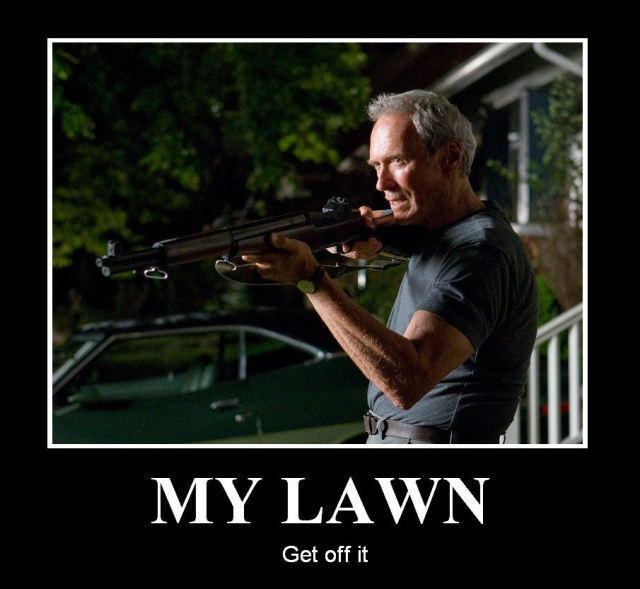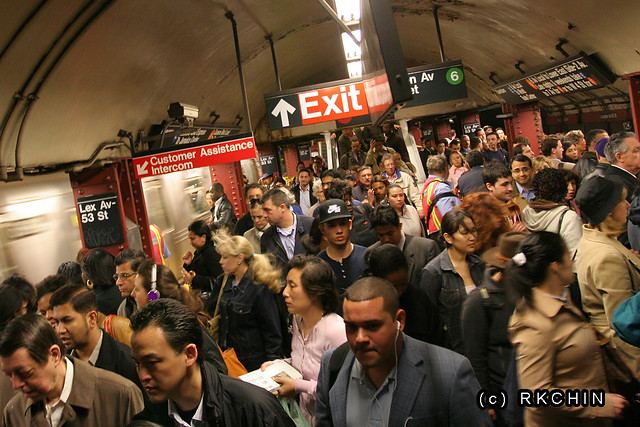Your post is excusable because you obviously don't know the history of mass transit in New York City or the present workings of the Metropolitan Transportation Authority.
The short story is that the New York City transit system used to be operated for profit by two private companies, the Brooklyn-Manhattan Transit company (BMT) and the Interborough Rapid Transit company (IRT). They managed to make a profit while keeping the fare at $0.05 from 1904 through the 1930's, when they requested and were denied a far increase to $0.07.
In 1932, the City of New York established a third "company," the Independent Subway System (IND), to raise revenue by competing with the BMT and IRT. This "company," combined with the city's refusal to allow the fare increase to $0.07, drove the BMT and IRT into insolvency, and they were purchased at bargain-basement rates by the city in 1940.
Predictably, by the late 1960's, the city had made such a mess of mass transit that the system was essentially bankrupt, despite having already raised the fares by 400 percent. So Governor Nelson Rockefeller and Mayor John Lindsay conspired to illegally seize control of the Triborough Bridge and Tunnel Authority (TBTA), which was the only fiscally sound agency in New York City government at that time, from Robert Moses, and to divert the toll revenues to subsidize mass transit.
One of the reasons why the seizure was illegal was because the bonds that had been issued to find the bridges, tunnels, and so forth that were under TBTA's control clearly defined the purposes for which the toll revenue was to be used -- and funding mass transit was not among them. Another was that some (not all) of the tolls were supposed to expire when the bonds were paid off. The reason Rockefeller and Lindsay got away with it anyway was because Chase Manhattan Bank, which was run by the governor's brother John, held most of the bonds.
A new state agency, the Metropolitan Transportation Authority, was created to run the subways, regional commuter railroads, and bus systems, as well as the bridges and tunnels formerly run by the TBTA. The lion's share of the toll revenue was then diverted to public transit.
The MTA is quite probably the least accountable and most wasteful public agency ever established. Since the MTA was established, the tolls on the formerly TBTA bridges and tunnels have increased in varying amounts ranging from 800 percent to 1,600 percent; and since the city took over the subways (which were folded into the MTA), the fare has increased by more than 4,000 percent. There's also rental, advertising, and concession income from MTA-owned properties to the tune of
billions of dollars per year.
But all that revenue still isn't enough. The MTA exists in a
perpetual state of fiscal instability and must be subsidized by multiple surcharges, fees, and taxes paid by motorists, businesses of any kind, and self-employed people in any New York State county that has so much as a single MTA bus stop within its boundaries; as well as special taxes and surcharges on various transportation-related businesses, and numerous grants and subsidies from all levels of government.
And yet the MTA perpetually teeters on the brink of collapse. No amount of money has ever been enough to satisfy its hunger. It is a fiscal black hole.
The taxes, fees, and surcharges collected from people within MTA's footprint are not insignificant. We're not talking a few dollars a year. We're talking thousands of dollars. In fact, after Jeannette and I split, I decided to sell the business and move out of The City (before she changed her mind

). I considered places in New York as far north as the Adirondacks as well as in other states in the Northeast and New England. I did not, however, consider any county within the MTA's purview. I wanted to be far enough north that I wouldn't have to pay any of the numerous taxes, fees, and surcharges that would be levied against me as a self-employed person in, and merely as a resident of, any of those counties. The costs of supporting the MTA really are that bad.
Of course, anyone who lives in New York State pays for the MTA to some extent because of the grants and subsidies from general tax revenues and a few statewide subsidies built into various taxes and fees. The same could be said of anyone who lives in the United States, for that matter, since the agency receives massive federal subsidies as well. But the people who live in the Downtate New York counties where MTA has even a minimal presence get the biggest screwing of all, often to the tune of thousands of dollars a year.
So who's subsidizing whom?
People who live in the boondocks in general, even outside MTA's purview, pay more in fuel taxes (some of which also go to pay off MTA bonds, by the way) because of the increased distances that they drive. They also own more cars per capita and therefore pay more in registration fees and sales taxes. (Many people in New York City don't even bother to get driver's licenses, much less own cars.)
Furthermore, a lot of the roads in rural areas are maintained by counties and municipalities, not by the state, and that maintenance is funded by local tax revenues. Also, rural roads in general require less maintenance because they get less use. Other than filling a few potholes every spring, most of the roads around here are on 10-year resurfacing cycles. Some are longer.
The other insult in all this is the myth perpetuated by pro-mass transit advocates that "rich people" drive cars and "poor people" ride the subways. This too is a farce.
Take a look at the traffic waiting to pay the tolls at the Midtown or Battery tunnels some day. The vast majority of vehicles are either taxis or service vehicles of some sort (maids, plumbers, carpenters, couriers, mobile food vendors, delivery trucks, and so forth) driven by blue-collar people. They have no choice other than to drive because of the tools and materials that they need to schlep around with them. The bankers, stockbrokers, commodities traders, and CEOs, on the other hand, can take Metro North, the LIRR, and the subways and buses because all they need to carry is their briefcases and their egos.
Consequently, a farmer, storekeeper, handyman, or other self-employed person -- or even simply a resident -- of Dutchess, Putnam, Orange, or any other county in MTA's purview, is paying extra taxes, fees, and surcharges to subsidize the commutes of bankers, stockbrokers, commodities traders, and CEOs riding the railroads, subways, and buses -- quite contrary to the common myth.
So again, who's subsidizing whom?
Personally, I've long favored dismantling the MTA and selling it off to private operators. The only time New York City transit ever operated efficiently was under private ownership. It was profitable enough that the city itself got into the game, first by establishing the IND and then by buying the MBT and IRT, because they thought mass transit was a lucrative revenue source. Look how that turned out.
Rich


 ). I considered places in New York as far north as the Adirondacks as well as in other states in the Northeast and New England. I did not, however, consider any county within the MTA's purview. I wanted to be far enough north that I wouldn't have to pay any of the numerous taxes, fees, and surcharges that would be levied against me as a self-employed person in, and merely as a resident of, any of those counties. The costs of supporting the MTA really are that bad.
). I considered places in New York as far north as the Adirondacks as well as in other states in the Northeast and New England. I did not, however, consider any county within the MTA's purview. I wanted to be far enough north that I wouldn't have to pay any of the numerous taxes, fees, and surcharges that would be levied against me as a self-employed person in, and merely as a resident of, any of those counties. The costs of supporting the MTA really are that bad.
